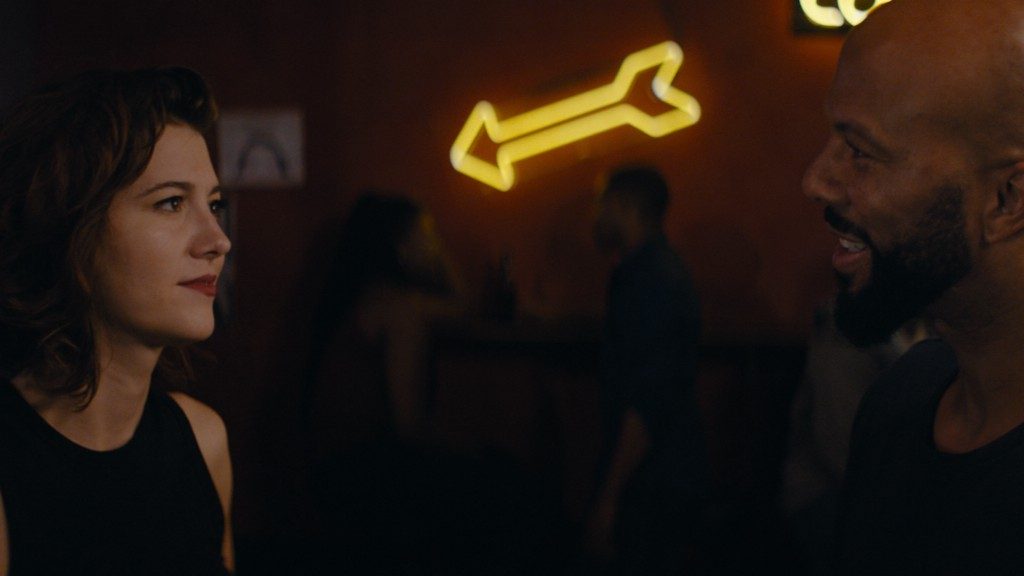Eva Vives won Best Short at the Sundance and Cannes in 2000 with “Five Feet High and Rising,” a short she cast, edited, and produced. She followed that up with a feature she co-wrote, “Raising Victor Vargas.” Most recently, Vives wrote and directed her short film “Join the Club,” which was admitted to the Sundance Film Festival in 2016, among others. “All About Nina” is her feature directorial debut.
“All About Nina” will premiere at the 2018 Tribeca Film Festival on April 22.
W&H: Describe the film for us in your own words.
EV: “All About Nina” is a dark comedy about a stand-up comedian who can be brutally honest on stage but is having a hard time being truthful in her personal life.
W&H: What drew you to this story?
EV: It’s not so much that I was drawn to the story as needed to get it out of my head. It’s more or less my story, or at least part of my story, summarized into a neat 97 minutes, and I had been wanting to tell it one way or another for a long time.
W&H: What do you want people to think about when they are leaving the theater?
EV: I sincerely hope they have laughed, and cried. I would love it if survivors watching it felt understood and hopeful by the end — hopeful that you can go through something harrowing like rape or sexual abuse, and still have the life you dreamed of.
For others, I’d love it if the film shines a light on what it is like to live as a survivor every day.
W&H: What was the biggest challenge in making the film?
EV: Money. Isn’t it always money? I’m a female, Spanish, first-time filmmaker telling a tonally tricky, personal, “female” story. No matter how many times women turn films into hits, they are still seen as “difficult” for audiences. So yeah, finding money and keeping it was not easy.
W&H: How did you get your film funded? Share some insights into how you got the film made.
EV: I wrote and directed a short film in 2015 that played at the Sundance Film Festival in 2016. It was programmed in front of a feature, and the financiers of that film came on by the end of 2016, when I had gone through all the Sundance Institute Labs and rewritten the script for a year. (Which, incidentally, I recommend to everyone — writing for a year, I mean.)
Those financiers left — for reasons that are still unclear to me — about a month before pre-production. So we had to push our dates, and scramble for money. This film wouldn’t have happened without Brian Kavanaugh-Jones, who has been a friend for years, and was already a fan of the script. He introduced me to the current financiers.
W&H: What does it mean for you to have your film play at Tribeca Film Festival?
EV: A lot! I moved to New York all by myself when I was 18 to attend NYU, and it immediately and irrevocably became my home. I love the city.
We were shooting a film I co-wrote, “Raising Victor Vargas,” when 9/11 happened, and I remember soon after hearing about the festival, and going to screenings in that very difficult aftermath. The festival always makes me think of those days, and in that way, it feels emblematic of what a city like New York can do best: pick herself up by her bootstraps, and keep going.
It’s what I did when I moved there. It’s what my movie is about. And it’s what people have been doing in it for decades.
W&H: What’s the best and worst advice you’ve received?
EV: Best advice: Trust your instincts. Many people have told me this in some shape or form, and I think it’s good advice because even if you fuck something up, it will have been based on your choice, not someone else’s, and there is something to learn from that.
I guess it says something about me that I don’t remember any bad advice. I probably just ignore it. I don’t know if this counts as advice but I was told a lot through the making of this film, in one way or another, to try to make Nina “nicer.” That seemed to me like they were missing the point. Oh yeah, I remember one: “Give Nina a puppy, or a baby.”
W&H: What advice do you have for other female directors?
EV: Do they need advice? I think they know what they’re doing!
W&H: Name your favorite woman-directed film and why.
EV: That’s really tough because there are so many. But I love “The Night Porter” — directed by Liliana Cavani — which was a very early look at the effects of war and sexual violence on women with a tremendous performance by Charlotte Rampling. I wish there were more depictions of survivors in film that didn’t end tragically, but nevertheless, the film has a real core to it, and is relentless in its character exposition. It’s a very brave film.
W&H: Hollywood and the global film industry are in the midst of undergoing a major transformation. Many women — and some men — in the industry are speaking publicly about their experiences being assaulted and harassed. What are your thoughts on the #TimesUp movement and the push for equality in the film business?
EV: It’s about time, you know? Most of the women I know in this industry — myself included — have been at it for years. The fact that women do good work that is consistently overlooked is not new, so I’m glad, for lack of a better word, that this is slowly and finally happening.
I think men need to be a part of it as well. Without their participation, it will continue to be an upstream battle, and will only be seen as a woman’s issue when it’s not.







